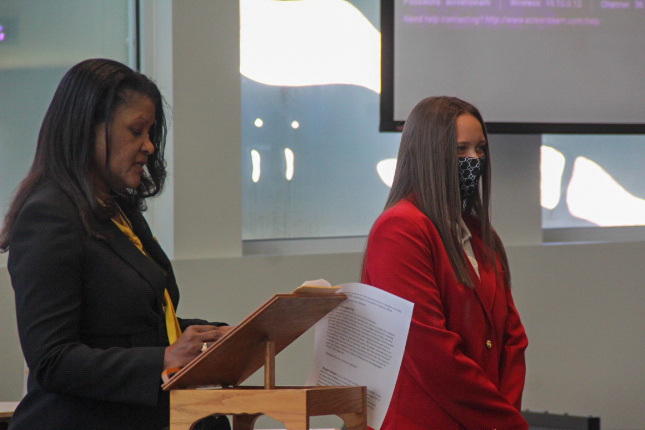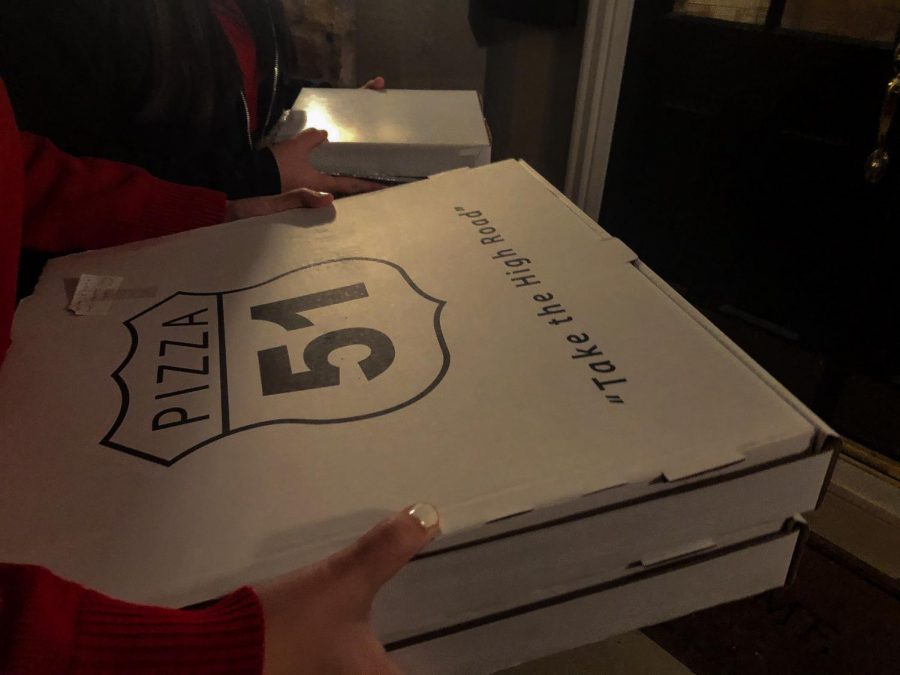Early last week, TikTok sued to block a U.S. law that proposed a nationwide ban of the app. The legislation, passed in April, was prompted by concerns about national security.
Since TikTok was introduced in 2016, it has experienced a meteoric rise in popularity, growing to boast 1.5 billion monthly users and generate $9.4 billion in revenue per year. In the U.S., the app is used by 170 million Americans.
While TikTok is widely utilized for entertainment and business purposes, legislators have become increasingly concerned about national security risks associated with the app.
According to USA Today, “The FBI and the Federal Communications Commission have warned that the company could share sweeping user data, including browsing history, location and other identifiers, with Chinese authorities.”
This year is not the first time concerns have arisen. In 2020, then-President Trump attempted to push ByteDance, TikTok’s Beijing-based parent company, to either sell TikTok or risk being banned from American app stores. The attempt ultimately failed, but governmental worries persisted.
In 2022, concerns arose about TikTok employees accessing nonpublic user information, and in February of 2023 the U.S. government mandated that the social media app be deleted from all government devices.
In the wake of these events, TikTok’s CEO, Shou Zi Chew, attended a congressional hearing in March of 2023. While topics of conversation were wide, concern for the security of American data remained central, and film of the hearing circulated on the TikTok platform. Chew claimed that user data was being protected by Project Texas, which began in 2022 and sought to move American data to servers in the United States, overseen by the Texas-based company Oracle.
This year, the issue of national security came to the surface once again, centering on fears that the Chinese government could use TikTok to spy on American citizens and influence the American public. On March 13, 2024, a bill passed the House of Representatives that would force ByteDance to sell the app within six months. If the company declined to sell, it would become illegal to distribute apps developed by ByteDance in the United States. TikTok would become unavailable for new downloads, and existing users wouldn’t be able to update it.
Before the bill could be voted on by the Senate, however, new legislation passed the House on April 20th by a vote of 360 to 58, as part of an aid package for Israel, Ukraine and Taiwan. The new bill was passed by the Senate on April 23rd, with a 79 to 18 vote in favor. On April 24th, Biden signed the bill into law.
The new legislation is similar to the original proposal but provides ByteDance with 270 days to sell, an extension of the original six month deadline. It also allows the President the ability to extend the deadline if he believes there is an upcoming sale.
TikTok responded to the new development on April 17th with a post on the social media platform X: “It is unfortunate that the House of Representatives is using the cover of important foreign and humanitarian assistance to once again jam through a ban bill that would trample the free speech rights of 170 million Americans, devastate 7 million businesses, and shutter a platform that contributes $24 billion to the U.S. economy, annually.”
The company sued the United States government on May 7th in an attempt to stop the new measure, citing it as an abuse of first amendment freedom of speech rights. In addition, the company encouraged users to complain to their congressional representatives. Many creators oppose the bill on the grounds that it supports their incomes.
Even if the bill proves successful, another question arises: will a sale actually be possible? Because of China’s export regulations, it is possible that the Chinese government could block the sale of TikTok’s recommendation algorithm, a large part of its worth. If a sale did go through, there are very few who have the resources to purchase the company, as it is likely to cost tens of billions of dollars.
These factors suggest that a TikTok sale or ban from app stores is not likely to happen any time in the near future; TikTok users won’t have to kiss the app goodbye anytime soon.
Aside from national security risks, many in the STA community oppose TikTok for other reasons. Junior Ella Janssen had the app for more than five years before deleting it.
“I deleted TikTok just because I realized how much of a negative effect it had on me,” Janssen said. “I realized I had been spending way too many hours on there…just scrolling. I didn’t retain anything and my attention span just got really bad.”
Janssen also expressed fears about the content shown on the app, and cited mental health concerns.
“I just have seen myself deteriorate with attention span, and just my mental health,” Janssen said.
School counselor Mary Gajewski expressed similar concerns in regard to the STA student body.
“Anytime you’re a minor and you’re on a social media app, it’s open to anybody,” Gajewski said. “There’s that potential for victimization. There’s a huge safety risk for just mental health and depression, anxiety.”
She also addressed the disconnect social media can create.
“I think that what we’re losing is connection,” Gajewski said. “And ironically, social media is meant to connect people…People can’t survive without some kind of that interpersonal connection…You can’t hug your computer and get the same feedback.”
Gajewski also advised that users need to be careful when consuming information from TikTok.
“I do think oversight is necessary,” Gajewski said. “I do think we should be asking questions. Who was developing this? Who is seeing this? Who has access to this content? Who is posting information and is that information accurate? Is it misleading? Is it purposefully misleading or is it meant to be ironic? I do think that anybody who uses a social media app should go into it with those questions in mind.”
This article contains information from the following sources: CBS News, CNBC, CNN Business, NBC News, NPR, The New York Times, and USA Today.











